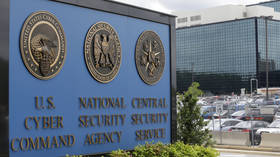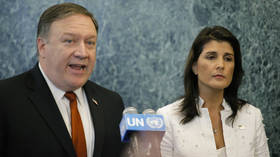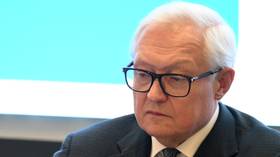US spies pressured Brits to censor Snowden leaks – media

The US National Security Agency (NSA) lobbied its British counterpart, GCHQ, to stop The Guardian from publishing Edward Snowden’s revelations about its mass surveillance programs in 2013, according to a book previewed in the British newspaper.
An NSA official called Government Communications Headquarters (GCHQ) chief Sir Iain Lobban in the early hours of June 6, 2013, the book claims. According to its author, investigative journalist Richard Kerbaj, Lobban was asked to intervene and prevent The Guardian from publishing Snowden’s story – which revealed the existence of an illegal NSA spying program on the American public.
Lobban, however, reportedly felt that “the proposition of urging a newspaper to spike the article for the sake of the NSA seemed a step too far,” and that it was “neither the purpose of his agency nor his own to deal with the NSA’s public relations.”
Later that day, the Washington Post and The Guardian published their first stories based on the classified documents leaked by Snowden. The first articles detailed the NSA’s use of a top-secret court order to collect the telephone records of millions of Verizon customers, and later stories revealed that the agency collected data through ‘back doors’ into US companies such as Google and Facebook, and that it collected phone calls and emails from citizens of Germany, Brazil, and dozens of Latin American, European, and Middle Eastern countries.
Snowden’s documents also revealed that then-President Barack Obama ordered cyberattacks on foreign targets and that his administration bugged the offices of foreign embassies and governments, among countless other misdeeds.
While the GCHQ initially took a hands-off approach, the prime minister of the UK at the time, David Cameron, warned The Guardian in October that he would use legal mechanisms “or other tougher measures” to stop it from publishing any more of Snowden’s leaks. This warning came after a slew of stories accused the GCHQ of engaging in the same widespread data collection practices, and revealed that the British agency had worked with the NSA to spy on foreign citizens and governments, including those of their allies.
The US Justice Department unsealed espionage charges against Snowden on June 21, after which the US State Department revoked his passport. Two days later he arrived in Moscow, where he was offered asylum a month later. Snowden was granted permanent residency in Russia in 2020.













